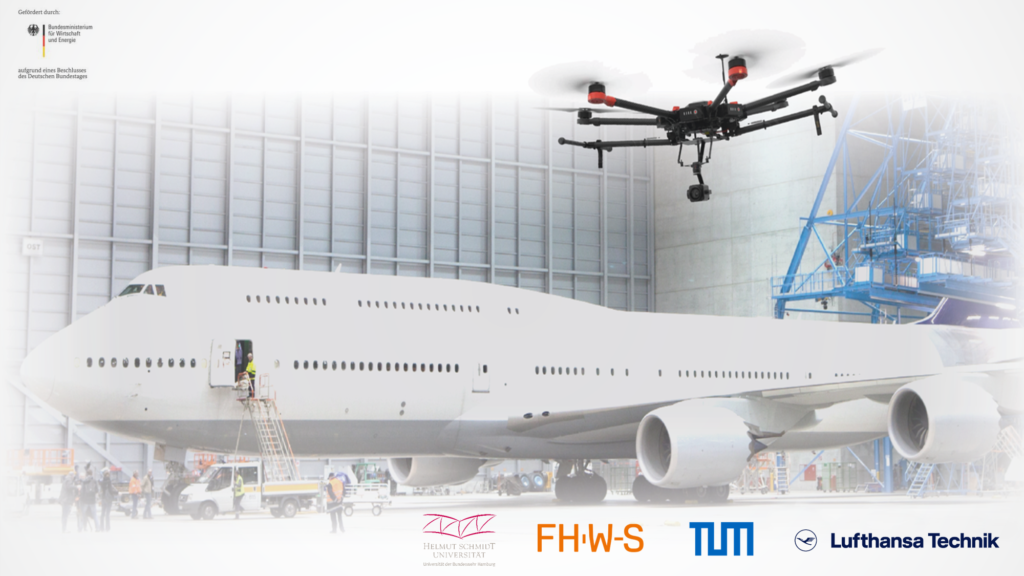Automated execution of inspection tasks by UAS and AI-supported data evaluation

The inspection of commercial aircrafts is a time consuming and expensive process. It usually requires the construction of scaffolds around an airplane to make sure that technicians are able to inspect the entire surface of the plane and can localize damaged areas. These inspections are usually performed on a planned schedule, but in some cases airplanes need to be inspected spontaneously. Damage caused by lightning strikes, which are harmless for the passengers but can cause structural damage to the plane, is one of the most common types of damage.
In the joint project ‘AI inspection drone’ our goal is the development of an automated inspection process for commercial aircraft with focus on the detection of damaged areas. This would be a significant contribution to lowering the required time and costs for inspections and increasing the efficiency of air travel.
The project lead is Lufthansa Technik. Besides the Helmut-Schmidt-University the project is also worked on by the Technical University of Munich and the University of Applied Sciences Würzburg-Schweinfurt.
The inspection is performed by an automated drone, which is able to fly around the inspected object and take high-resolution images of the surface area. Afterwards the image data is evaluated by an artificial intelligence. This allows the technicians to focus their work on the detected damages.
We, the Institute of Control Engineering, are testing the automated drone in a flight cage in our institute’s laboratory. This flight cage is equipped with a motion capture system that is able to detect the drone’s position, which can be used to depict the drone in a simulated environment for hardware in the loop tests and allows the controlled testing of various things like mission planning and obstacle avoidance solutions.
The project is funded by the federal ministry for economic affairs and energy (BMWi) of Germany. We are thankful for this support. If you would like to be part of this exciting development process or learn more about this project, feel free to contact Mark Tappe or Daniel Dose.
Letzte Änderung: 15. April 2021
